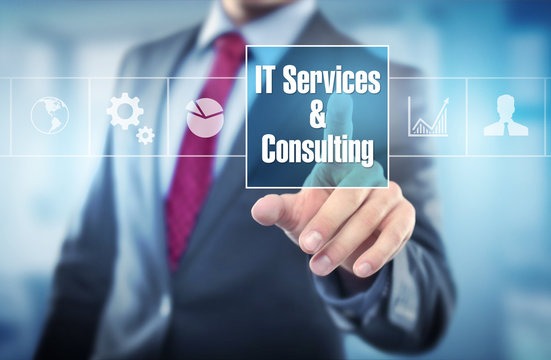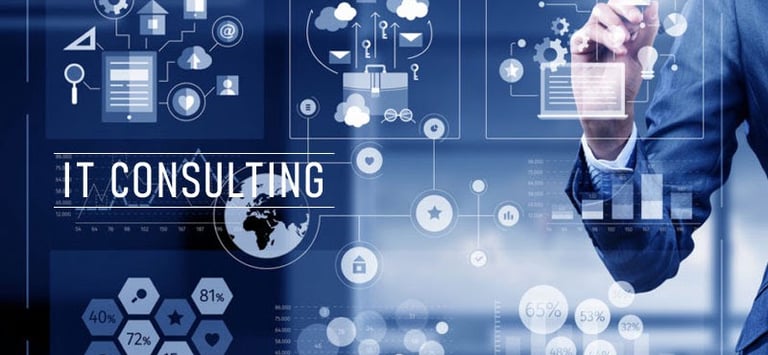IT Strategy and Planning:
IT Needs Assessment: Analyzing a client's current IT infrastructure, processes, and business goals to identify areas for improvement and potential technology solutions.
IT Strategic Planning: Developing long-term IT strategies aligned with the client's overall business objectives, including technology roadmaps, budgeting, and resource allocation.
Digital Transformation Consulting: Guiding businesses through the process of integrating digital technologies into all areas of their operations.
Technology Selection and Procurement: Assisting clients in choosing the right hardware, software, and cloud services based on their specific requirements and budget.
IT Governance and Compliance: Advising on IT policies, procedures, and compliance with relevant regulations.


Infrastructure Consulting:
Network Design and Optimization: Providing expert advice on network architecture, security, and performance to ensure a robust and efficient network infrastructure (building upon their Networking Services).
Server and Storage Solutions: Recommending and planning server and storage solutions that meet the client's current and future needs.
Cloud Computing Consulting: Advising on the adoption and migration to cloud services (e.g., AWS, Azure, Google Cloud), including cost optimization and security considerations.
Virtualization Consulting: Planning and implementing virtualization technologies to improve resource utilization and flexibility.
Cybersecurity Risk Assessment: Identifying potential security vulnerabilities and threats to a client's IT systems and data.
Security Policy Development: Creating and implementing security policies and procedures to mitigate risks.
Disaster Recovery and Business Continuity Planning: Developing plans to ensure business operations can continue in the event of a disaster or major IT outage (building upon their Data Services).
Security Awareness Training (as part of a broader consulting engagement): Educating employees on cybersecurity best practices.
Security Consulting:




Process Improvement and Optimization:
IT Process Analysis: Evaluating existing IT processes to identify bottlenecks and areas for improvement.
IT Service Management (ITSM) Consulting: Advising on the implementation of ITSM frameworks to improve the delivery and management of IT services.
Automation Consulting: Identifying opportunities to automate IT tasks and processes for increased efficiency.


Specialized IT Consulting:
Industry-Specific IT Solutions: Providing consulting services tailored to the unique IT needs of specific industries (e.g., healthcare, finance, retail).
Smart Home Technology Consulting (for businesses or large residential projects): Advising on the integration and management of smart home technologies in commercial or large-scale residential settings.


Expertise and Experience: Providing insights and recommendations based on in-depth knowledge and industry best practices.
Objective Advice: Offering unbiased recommendations without being tied to specific vendors or solutions.
Strategic Thinking: Focusing on long-term solutions and aligning IT with business goals.
Communication and Collaboration: Effectively communicating complex technical information to non-technical stakeholders and working collaboratively with clients.
Problem-Solving: Analyzing complex IT challenges and developing effective solutions.
Key Aspects of IT Consulting:


© 2026. All rights reserved by Xtreme Solution Curaçao.
Our Family of Solutions:
Xtreme Solution Curaçao (Main) | Apex Market | Financial Strategies | Marketing Innovation | Tech Solutions
Willemstad, Curaçao
